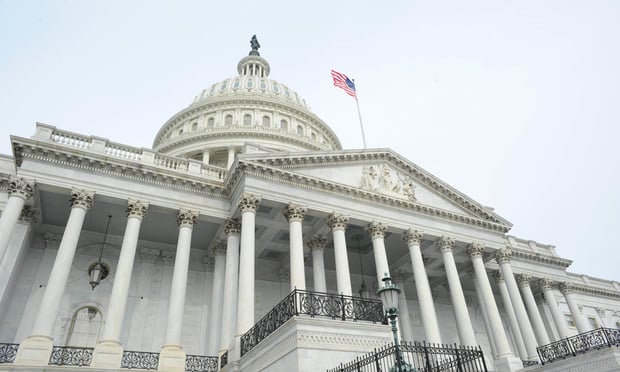 NCUA board members during the meeting on June 22, 2023.
NCUA board members during the meeting on June 22, 2023.
In a 3-0 vote on Thursday, the NCUA board approved a notice and request for comment concerning adjustments to the operating fee methodology it uses to determine fees charged to federal credit unions.
According to the NCUA's request, the board would like to raise the operating fee exemption threshold from $1 million to $2 million in asset size.
Recommended For You
NCUA Board Chairman Todd Harper said, "Raising the operating fee exemption threshold to $2 million and indexing that threshold for inflation will provide a measure of relief to these institutions, bring the threshold back into alignment with where it once was, and keep it there going forward. I strongly encourage federal credit unions to share their views about whether to modify the rate structure of the operating fee methodology to make it less regressive. Given the industry's changing dynamics, I'd also like to know what other changes stakeholders would like the board to consider in future modifications of the operating fee methodology."
According to NCUA data, only 123 of the nation's 4,814 credit unions reported less than $1 million in assets as of March 31, while another 173 credit unions had assets of $1 million to under $2 million.
Credit unions with less than $1 million in assets together had $189.1 million in assets and 44,641 members. Credit unions with $1 million to under $2 million in assets had $92.4 million in assets combined with a total membership of 41,624. In all, these totals represent less than one-tenth of a percent of either category.
As part of its notice and request for comment, NCUA officials said they want to hear from credit unions about how the board should modify the current three-tier operating fee schedule.
Comments are due 60 days after the notice is published in the Federal Register.
MDI Preservation Program Approval
The NCUA board also approved, by a 3-0 vote, the proposed changes to its Interpretive Ruling and Policy Statement concerning the NCUA's Minority Depository Institution (MDI) Preservation Program.
According to the NCUA, the changes would amend the Interpretive Ruling and Policy Statement "to reflect the transfer of the MDI preservation program administration from the agency's Office of Minority and Women Inclusion to its Office of Credit Union Resources and Expansion, update the program's features, and clarify the requirements for a credit union to receive and maintain an MDI designation."
Harper said, "For millions of Americans, the work of MDI credit unions means under-resourced communities have access to safe, fair and affordable financial products and services. The proposed changes to our MDI preservation policy statement would enable hundreds of MDIs to continue meeting the needs of their members and communities. This, in turn, would help millions of Americans increase their financial security and opportunity."
Other proposed amendments to the Interpretive Ruling and Policy Statement include establishing a new standard for MDIs "to assess their designation" and an update to how the agency reviews MDI designation status.
Comments on the proposed changes are due within 60 days of publication in the Federal Register.
Updates on Charter Modernization Efforts
NCUA board members received a briefing from its Office of Credit Union Resources and Expansion concerning the effectiveness of its efforts to modernize the credit union charter process.
Of the improvements, according to NCUA officials, the turnaround time for reviewing and approving a credit union charter has been reduced from an average of 564 days in 2018 to 130 days in 2023.
 Credit/The NCUA
Credit/The NCUA Officials found the operational improvements resulted in more charters being approved in the past year than a three-year span between 2018 to 2020. In 2018, only one credit union charter was approved. Two charters were approved in 2019 and one in 2020. In 2021, officials reported approving four credit union charters and another four in 2022. So far in 2023, the NCUA has approved two new credit union charters.
"The NCUA is making meaningful improvements to its chartering process to bring new and more federal credit unions into the system," Harper said. "In doing so, we are providing more consumers with greater access to safe, fair and affordable services under the cooperative model."
In a statement, CUNA's Deputy Chief Advocacy Officer for Federal Government Affairs Jason Stverak said he was thankful for the progress the NCUA has made on the chartering process. "We applaud the NCUA's efforts to make its chartering process simpler and easier to navigate, thus creating avenues for brand new credit unions," Stverak said. "Creating more options for people to join a credit union is a crucial step toward increased financial inclusion and promotion of financial well-being for everyone in a community, and we support efforts to make the process of chartering a new credit union more feasible."
© 2025 ALM Global, LLC, All Rights Reserved. Request academic re-use from www.copyright.com. All other uses, submit a request to [email protected]. For more information visit Asset & Logo Licensing.








